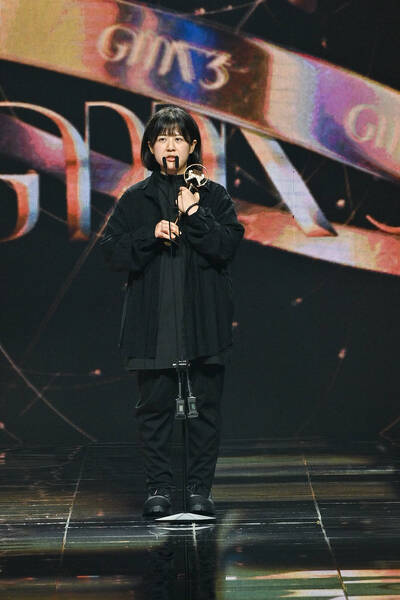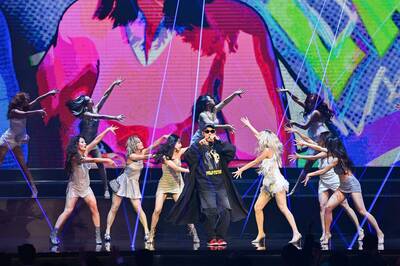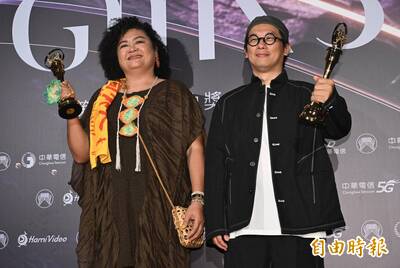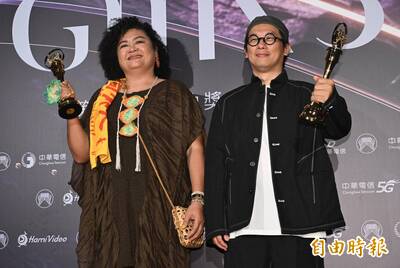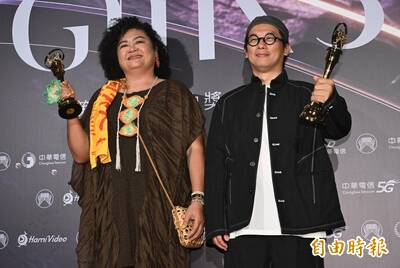《TAIPEI TIMES》Majority disagrees with Ma’s war statement: poll
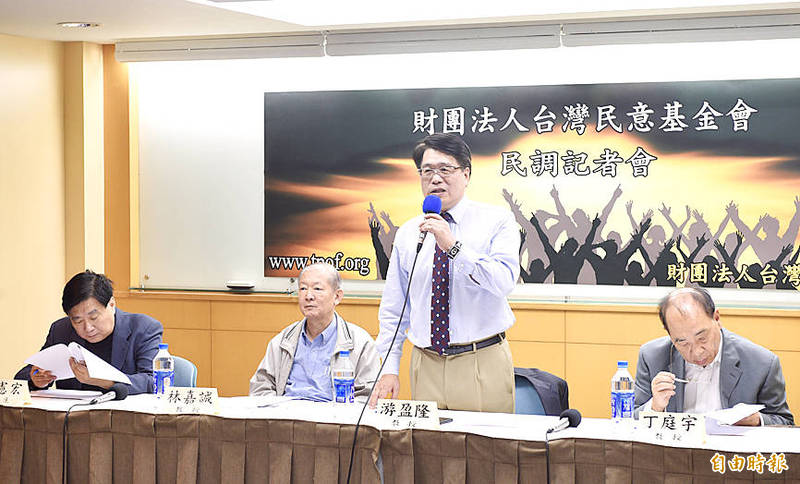
Taiwanese Public Opinion Foundation chairman Michael You, second right, speaks during a news conference in Taipei yesterday. Photo: Peter Lo, Taipei Times
‘TREASON’: Ma Ying-jeou has belittled the Taiwanese military and is forcing the public to accept China’s ‘one country, two systems’ formula, an ex-defense chief said
By Aaron Tu, Su Yung-yao and Dennis Xie / Staff reporters, with staff writer
Nearly 60 percent of Taiwanese disagreed with a statement by former president Ma Ying-jeou (馬英九) that if Beijing were to wage war against Taiwan, “the first battle will be the last,” a survey released yesterday by the Taiwan Foundation for Democracy showed.
The poll showed that 33.9 percent of respondents agreed with the statement, 58.3 percent disagreed and 3.7 percent had no opinion.
Ma on Aug. 10 said that if there were to be a war, the Chinese Communist Party (CCP) would make it quick, so that its invasion on Taiwan would be over by the time the US military comes to Taiwan’s aide.
“Not to mention that under the current circumstances, it would be impossible for the US military to come at all,” he added.
Defending his statement, Ma on Saturday said that he based his remarks on the Annual Assessment of the People’s Republic of China’s Political and Military Developments 2018 report by the Institute of National Defense and Security Research.
Not accepting the so-called “1992 consensus” is bad policy, as it would recklessly push the nation toward war, he said, adding that President Tsai Ing-wen (蔡英文), as the national leader, must strive to avoid war.
The “1992 consensus” — a term that former Mainland Affairs Council chairman Su Chi (蘇起) in 2006 admitted making up in 2000 — refers to a tacit understanding between the Chinese Nationalist Party (KMT) and the CCP that both sides of the Taiwan Strait acknowledge that there is “one China,” with each side having its own interpretation of what “China” means.
Foundation chairman Michael You (游盈隆) said the poll has validated Tsai’s criticism of Ma — that he is “standing on the opposite side of mainstream public opinion.”
The poll also asked respondents whether the Chinese People’s Liberation Army’s Eastern Theater Command’s statement on Aug. 13 that it had conducted military exercises in the Taiwan Strait had worried them, with 40.8 percent saying that it did, and 57.8 percent saying otherwise.
The poll, which was conducted by Focus Survey Research, collected 1,090 valid responses on Monday and Tuesday last week, and had a margin of error of 2.97 percentage points.
In related news, former minister of national defense Michael Tsai (蔡明憲) accused Ma of publicly belittling the Taiwanese military and trying to force Taiwanese to accept Beijing’s “one country, two systems” formula.
Ma’s remarks bostering China’s image verges on “treason,” said Michael Tsai, now president of the Taiwan United Nations Alliance.
With the US government approving the sale of military weapons to Taiwan, the nation’s defensive weapons have become increasingly sophisticated, he said.
Tsai Ing-wen’s dedication to building indigenous submarines and warplanes also deserve recognition, he added.
By contrast, during Ma’s administration, the government lacked a proper awareness of the CCP threat, making his eight-year presidential tenure a time when CCP infiltration into Taiwan was in full swing, he said.
Ma’s pro-China policy also led the US Department of Defense to cast doubt on the loyalty of the Taiwanese military at the time, he said.
The all-volunteer military system promoted by Ma during his presidential term has resulted in a lack of base-level soldiers, Michael Tsai said, urging Tsai Ing-wen to consider whether Taiwan should strike a balance between an all-volunteer and a conscription military system in the face of Chinese military intimidation.
The government should raise the national defense budget from 2 percent of GDP to 3 percent, he said, adding that China’s defense budget has been growing by an average of 8.5 percent each year, he said.
The president should act more proactively to establish mechanisms and platforms in which Taiwan, the US and Japan can collaborate on safeguarding regional peace and stability in the Taiwan Strait, the South China Sea and the East China Sea, he said.
Additional reporting by Chung Li-hua
新聞來源:TAIPEI TIMES











